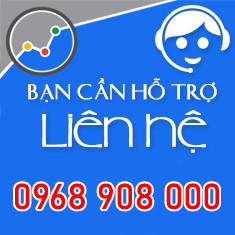-
30-01-2010, 10:03 AM #1Guest
Financial security will be “the number one priority” in managing the stock market this year, chairman of the State Securities Commission (SSC) said at a conference late last week.
Under a draft document prepared by the commission, investors and securities companies are welcome to offer and use new products but they have to obey rules about risk management on the market, Vu Bang said at the conference held in Hanoi to discuss ways to develop Vietnam’s stock market in 2010.
“The companies have to evaluate their risks every day and report to the commission. New products will be launched based on finance security.”
Products that contain very high risk should be delayed, he said.
For example, the cut from T+3 to T+2, meaning buyers would get delivery of their shares on the second day instead of third day after their purchase, has been approved by the Ministry of Finance and thus can be applied immediately, Bang said.
The Chairman also said the commission will cooperate with the ministries of Public Security and Information and Communication to tighten control on consultancy information supplied by brokerages as many market analyses last year confused investors and pushed stock prices up unreasonably.
Reports at the conference showed that 2009 was a good year of Vietnam’s market as the number of listed companies surged 30 percent to 457, only 20 brokerages made losses instead of 62 in 2008, and market capitalization was triple that of 2008 as it reached VND620 trillion (US$33.6 billion) or 38 percent of the GDP.
However officials said at the conference that laws governing stock transactions were still inadequate. Some called for more requirements on firms that want to listed.
Bang said several brokerages over last year made use of the government stimulus package to break rules for activities concerning repo, margin, multi-accounts under one investor and short sale, causing unfair competition by giving some firms undue advantage in the market.
Meanwhile Nguyen Bang Tam, Vice Chairman of the Club of Listed Firms, said listing requirements in Vietnam are very simple as any company with VND10-billion in capital, making profits and having plans to use that profit, can be listed.
Tam said the government should give more specific conditions such as how much ROA (Return on assets) and ROE (Return on equity) is required of firms wanting to list.
He cited examples from other countries where the number of additional shares that a listed firm can issue is based on whether its ROE has reached a certain point. Vietnam should also have rules about the elapse time between two share issues by a company, Tam said.
Nguyen Manh Hung, Deputy General Director of Ho Chi Minh City Stock Exchange, said HoSE will introduce more software to supervise trading on the exchange and will eliminate any abnormal transactions immediately.View more random threads:
- YBC: Explanation for 10 consecutive floor-plunging sessions
- Poperty shares hit the ceiling, both indices up (25/2/213)
- Stock indexes continue downward trend
- VE4: Notice of record date for Dividend payment in cash
- Large-caps leave markets blue
- Indices slump on blue chip fall
- Fuel price hike drives down both exchanges (29/3/13)
- Index stalls on anaemic trades
- Both bourses see continued drop
- GKM: Notice of record date for a ballot and dividend payment
Các Chủ đề tương tự
-
Shares make gains in Ha Noi
Bởi imported_xvietsao trong diễn đàn STOCKs TRADING IN HNXTrả lời: 0Bài viết cuối: 16-11-2011, 10:11 AM -
Stock markets urged to invest in new IT security applications
Bởi seotop1 trong diễn đàn STOCKs LISTED IN HoSETrả lời: 0Bài viết cuối: 31-01-2011, 03:32 AM -
Stocks make impressive U-turn
Bởi 59khuongtrung trong diễn đàn STOCKs LISTED IN HoSETrả lời: 0Bài viết cuối: 05-10-2010, 05:34 AM -
Electrical equipment firm to make IPO
Bởi imported_kanhtran trong diễn đàn STOCKs TRADING IN HNXTrả lời: 0Bài viết cuối: 12-08-2010, 06:34 AM -
how to make money from stock
Bởi imported_toyota trong diễn đàn CLB Chứng khoánTrả lời: 0Bài viết cuối: 02-05-2007, 10:25 AM



 Trả lời kèm Trích dẫn
Trả lời kèm Trích dẫn





Đại lý thiết bị tự động hóa chuyên cung cấp Mô đun giám sát Mayr Roba tại Việt Nam. Mayr Roba là nhà sản xuất hàng đầu về mô đun, phanh an toàn, khớp nối an toàn và khớp nối trục. Danh mục sản...
Mô đun giám sát Mayr Roba Việt Nam